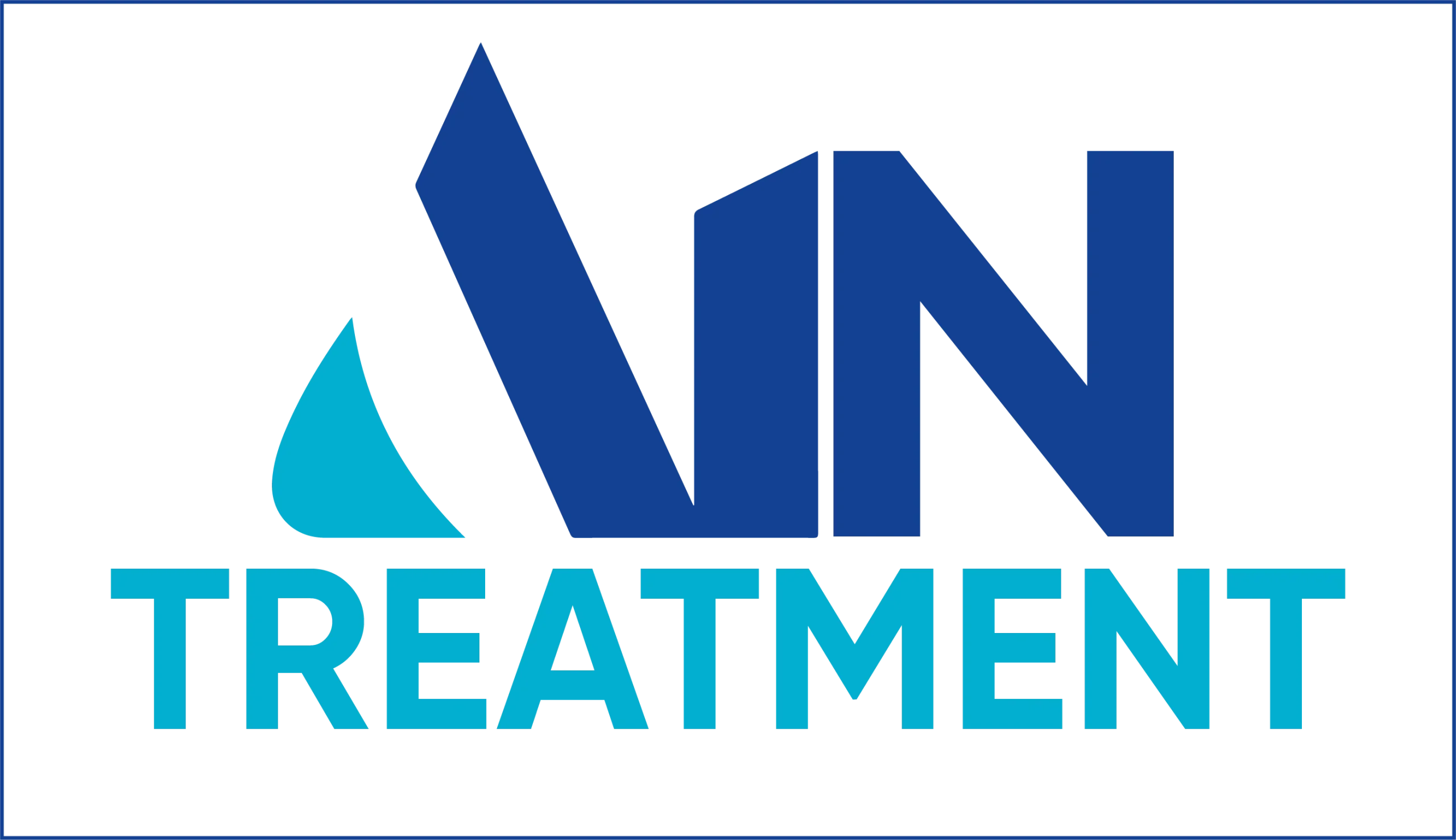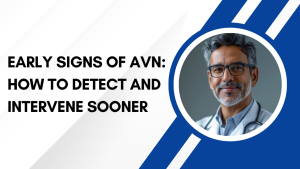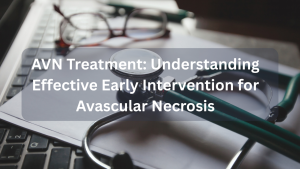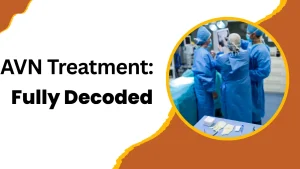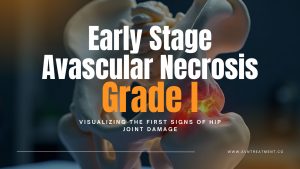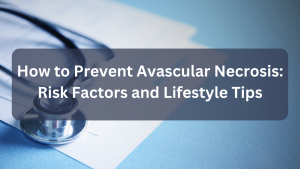Avascular necrosis (AVN), also known as osteonecrosis, is a condition where the blood supply to the bone is reduced or cut off. This loss of blood flow causes the bone tissue to die, leading to joint pain and, if untreated, potentially to joint collapse. The hip joint is one of the most common places where AVN develops because of its unique blood supply. Protecting your hip joint from avascular necrosis is important to keep it healthy and pain-free.
Understanding AVN and Its Causes
AVN happens when the tiny blood vessels that supply the bone with nutrients and oxygen get blocked or damaged. Without enough blood, the bone weakens and might break down. Sometimes the reason for this reduced blood flow is clear, such as a broken hip or dislocation. Other times, it is linked to conditions like excessive alcohol use, long-term steroid medication, or diseases like sickle cell anaemia.
In India, awareness of AVN is growing but there is still the risk of ignoring early signs. Knowing what causes AVN helps in protecting the hip joint.
Early symptoms often include pain in the groin or thigh, stiffness in the hip, and difficulty walking. If these appear, it is crucial to consult a doctor early.
How to Protect Your Hip Joint

Since AVN develops when blood supply reduces, the main goal is to maintain good blood flow and avoid damage.
Keep Weight in Check
Carrying extra body weight puts more pressure on your hip joints. This pressure can reduce blood flow and increase wear and tear on the bone and cartilage. Maintaining a healthy body weight through balanced diet and regular exercise helps reduce the burden on your hips. It is better to avoid sudden weight gain.
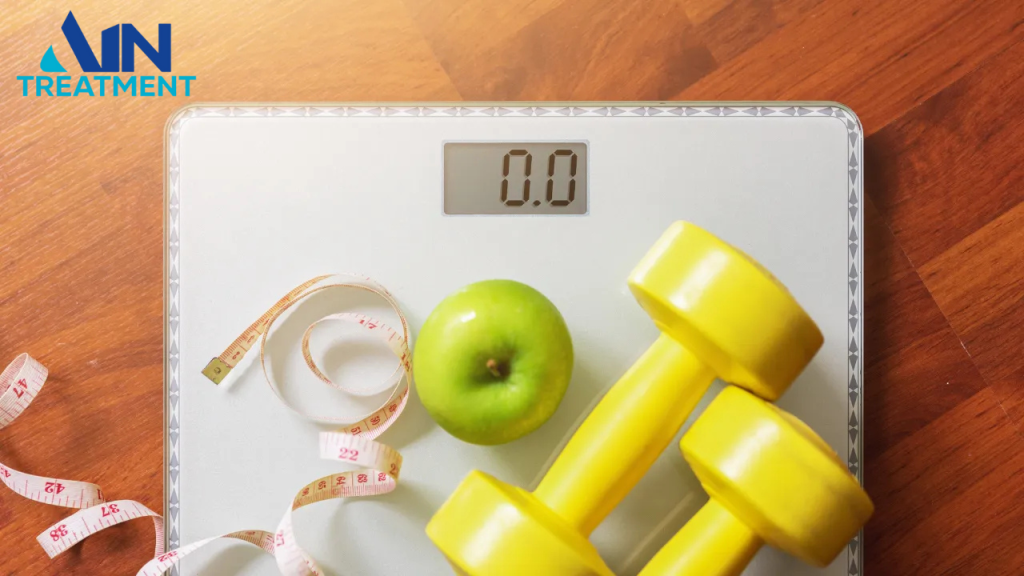
Avoid High-Risk Habits
Alcohol and smoking are known risk factors for AVN. Alcohol affects how your liver processes fat, which can block blood vessels. Smoking narrows blood vessels and reduces oxygen delivery to tissues. Stopping smoking and limiting alcohol intake are important steps in protecting your hips.
Be Careful with Steroids
Steroid medicines are useful for many conditions but taking them in high doses or for a long time increases the risk of AVN. If you require steroids, talk to your doctor about the lowest effective dose and possible alternatives. Do not stop or change medicine without professional advice.
Manage Health Conditions Well
Conditions such as diabetes, high cholesterol, and blood disorders can affect blood flow. Proper management of these illnesses with regular checkups, healthy diet, and medication as prescribed can reduce the risk of blood vessel damage.
Stay Active, But Avoid High Impact Stress
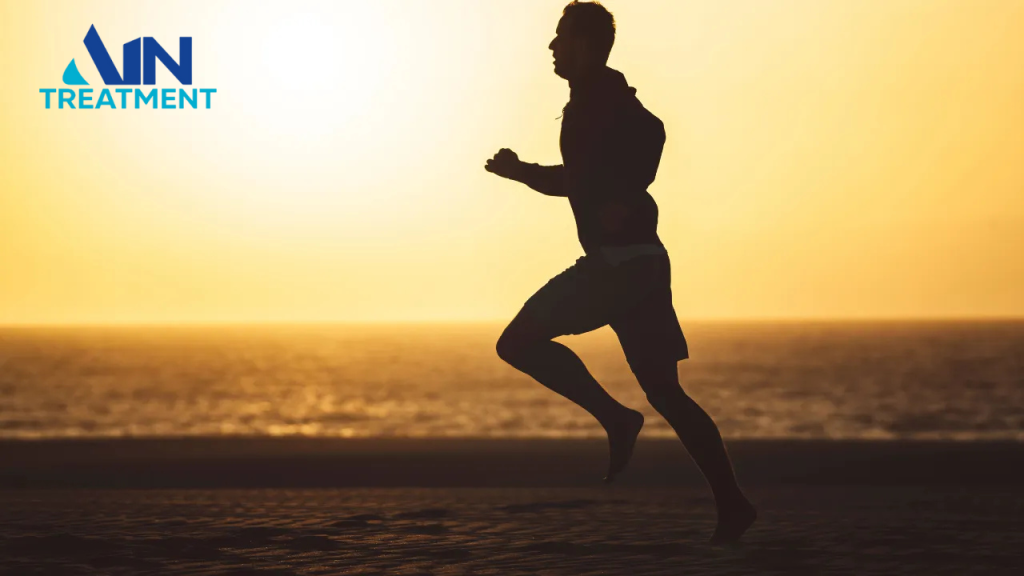
Regular low-impact exercises like walking, swimming, or cycling stimulate blood flow around the joints and keep muscles strong. Strong muscles support your hip and reduce injury risk. However, avoid high-impact activities or heavy lifting that strain the hip joint excessively.
Listen to Your Body
If you feel persistent hip pain, stiffness, or difficulty moving, do not ignore these signs. Early medical advice and diagnosis can slow or stop the progress of AVN. Sometimes early treatment or simple changes in lifestyle can save you from surgery.
Healthy Nutrition for Bone and Joint Health
A balanced diet rich in calcium, vitamin D, and other essential nutrients supports bone health. In India, foods like milk, curd, green leafy vegetables, and oily fish provide these nutrients. Sunlight exposure helps your body produce vitamin D, which is vital for calcium absorption.
Routine Health Checkups
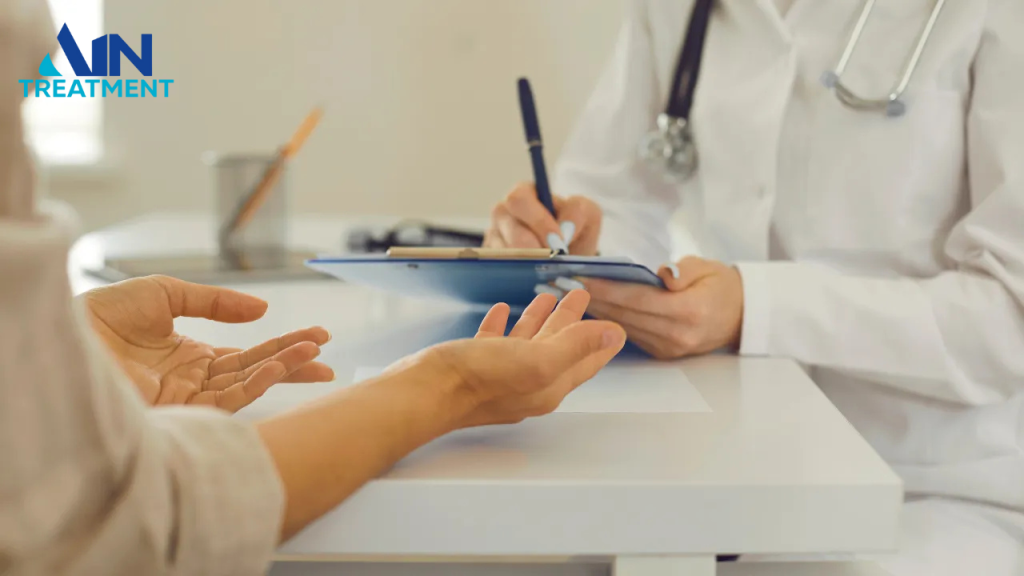
Regular health checkups including blood tests and bone scans when advised, help track your bone health. If you have any risk factors for AVN, discuss with your doctor about screening options.
Avoid Injuries
Falls and accidents that injure the hip can reduce blood flow and cause AVN. Take precautions at home and outside to prevent slips and falls. Use protective gear if you do sports or manual labour.
What to Expect If You Have AVN
If diagnosed early, doctors may suggest treatments to improve blood flow or reduce weight on the hip joint. These might include medicines, physiotherapy, or less invasive surgeries.
In advanced cases where the bone is damaged, hip replacement surgery may be needed. Early detection and lifestyle measures increase the chances of avoiding major surgery.
Takeaway
Protecting your hip joint from avascular necrosis involves a mix of healthy lifestyle habits, avoiding risks, and early medical care. By keeping weight under control, quitting smoking and alcohol, staying active with safe exercises, and watching for symptoms, you can keep your hips healthy.
If you feel any pain or discomfort in the hip, especially if you have risk factors like steroid use or alcohol consumption, seek medical advice. Avascular necrosis can be managed best when caught early.
Taking small, steady steps each day can protect your hip joint and improve your quality of life.
